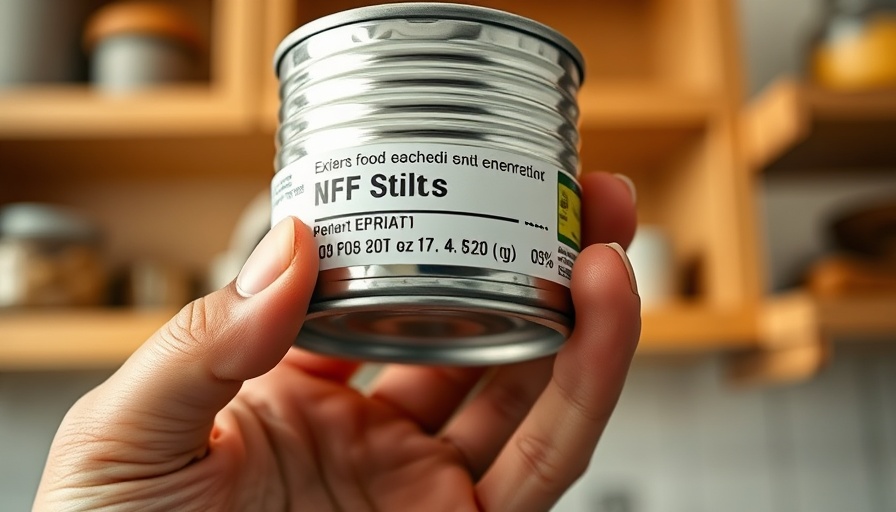
Understanding Expiration Dates: The Essentials
Every grocery shopper has faced the same dilemma: you take a jar of yogurt or a can of beans from the fridge, only to discover that the expiration date has passed. Should you toss it away or is it still edible? Knowing what to do with expired food begins with understanding the two main types of expiration dates: 'best before' and 'use by'.
What Does 'Best Before' Really Mean?
The 'best before' date indicates the period during which the product is expected to maintain its best flavor and quality. However, after this date, the food is often still safe to consume, albeit possibly less appealing. Foods like rice, pasta, and canned vegetables typically fall into this category. If the product looks, smells, and tastes normal, it’s likely still good to eat. Thus, don't rush to throw these items away if they are just a day or two past their date.
'Use By': A Different Story
In stark contrast is the 'use by' date, which refers to products that can spoil faster, such as meat, fish, and pre-cut fruits and vegetables. Consuming products after this date can pose health risks due to the potential growth of harmful bacteria that cannot be identified by sight, smell, or taste. It is advisable to discard these items if they have surpassed their 'use by' date, as safe consumption cannot be guaranteed.
What Happens After Opening?
Once a product is opened, the expiration date ceases to apply as indicated on the packaging. The new shelf life depends on the type of food and its storage conditions. Always consult any guidelines included on the packaging or the guidelines provided by health authorities, such as the Netherlands’ Voedingscentrum, for storing opened foods safely.
Valuable Tips to Reduce Food Waste
To minimize food waste, consider these practical strategies:
- Freeze Your Food: If you know you won't finish a perishable item before the 'use by' date, freezing can extend its lifespan significantly. This method preserves the quality and safety of many foods.
- Plan Your Meals: Create meal plans that take into account the expiration dates of food items in your pantry and fridge. This approach helps use up ingredients before they spoil.
- Learn How to Store Foods Properly: Different foods have different requirements. Understanding how to store items correctly (e.g., moisture control, temperature) can prolong freshness.
Let’s Talk Common Myths
Myths surrounding food expiration dates abound. One common misconception is that all food goes bad the day after the expiration date. However, as we’ve discussed, many items can remain safe to consume well past their 'best before' date.
The Emotional Toll of Food Waste
Throwing away food can invoke feelings of guilt and wastefulness, especially in a world that's increasingly conscious of environmental issues. Research indicates that food waste not only contributes to landfill overflow but also exacerbates climate change due to methane emissions from decomposing food. Understanding how to manage expiration dates responsibly plays a significant role in reducing personal and global waste.
Why This Matters to You
Being well-informed about food expiration can empower you to make smarter choices, both for your health and the planet. Recognizing which products to keep and which to discard reduces waste and can save you money in the long run.
Final Thoughts: Embrace Attentive Consumption
With knowledge comes responsibility. Knowing the nuances of expiration dates entails not only keeping your health in mind but also contributing to a more sustainable world by reducing food wastage. The next time you're unsure about an expired product, remember to rely on your senses, consider the type of date indicated, and make the best decision for yourself and the environment.
Feeling empowered to make smarter eating choices? Stay informed and consider meal prepping as an exciting way to embrace fresh ingredients while minimizing waste. Let's cultivate a community of conscious consumers together!
 Rij toevoegen
Rij toevoegen






Write A Comment